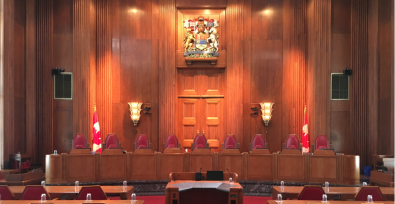The case, R v. Kloubakov, is set to be heard by the Supreme Court of Canada in November 2024. The case involves two men from Calgary who were convicted under Canada’s sex work laws for financially benefiting from prostitution by working as drivers for sex workers. According to a report by The Conversation, the men are appealing their convictions, arguing that Canada’s sex work laws criminalize non-exploitative roles, such as providing support services, infringing upon Charter rights.
Advocates for the decriminalization of sex work argue that by criminalizing various aspects of the industry and forcing workers into isolation, the law prevents sex workers from accessing vital safety tools, such as hiring drivers or security personnel. This isolation exacerbates their vulnerability to exploitation and trafficking, as it diminishes their bargaining power and discourages them from reporting abuse due to fear of legal repercussions.
This case could significantly affect the legal landscape for sex workers and those working with them, raising concerns over whether the current laws actually protect workers or push them into more dangerous situations.
Ignoring sex workers on a case about sex work
The Supreme Court is barring a national coalition of 23 sex worker organizations and two organizations that work with migrant sex workers, claiming that “their views are irrelevant.”
As reported by The Conversation,
The court has concluded their views are irrelevant to the case at hand. This exclusion rehearses Canada’s longer history of excluding those connected with sex work based on race, gender and immigration status.
Canada’s sex work laws and the case for decriminalization
This case is based on Canada’s Protection of Communities and Exploited Persons Act (PCEPA), which criminalizes “everyone who procures a person to offer or provide sexual services” and anyone “who receives a financial or other material benefit” from sex work. While the law is framed as a way to protect vulnerable workers, advocacy groups argue it does the opposite by driving the sex work industry further underground and endangering the very people it claims to protect.
The Canadian Alliance for Sex Work Law Reform (CASWLR) states,
“Sex workers and those wishing to purchase sexual services must avoid police for fear of detection, apprehension, and in the case of migrant women, deportation.”
CASWLR argues that sex workers are left in vulnerable positions because they cannot hire third parties such as drivers or security without risking prosecution under PCEPA.
Going underground means sex workers are at amplified risk of exploitation and physical harm because they have reduced bargaining power and cannot use safety measures, such as hiring third parties or implementing certain vetting and safety protocols in the spaces they would like to use, for fear of attracting the attention of polices.
Unique dangers for migrant sex workers
The stakes are even higher for migrant sex workers, who could face detention, deportation, and a permanent ban from re-entering Canada if charged or even investigated under the country’s sex work laws. This fear forces many migrant workers into riskier, more hidden work, leaving them vulnerable to abuse and exploitation by clients and third parties alike. As stated in the article, “sex workers are effectively forced into these precarious conditions because of the existing laws.”
Despite the critical impact on migrant sex workers, the Supreme Court has refused to hear testimony from the Migrant Workers Alliance for Change and the Canadian Association of Refugee Lawyers. As the article points out, historically, both the Canadian and U.S. governments have used laws to target migrant women, especially Asian women, under the guise of protecting them from trafficking.
A high stake fight for ALL workers’ rights
“Courts are meant to consider the wider implications of how laws are interpreted, implemented, and the potential ways they affect others,” states CASWLR.
Critics argue that the Supreme Court’s refusal to hear from sex workers and migrant advocates reflects a broader unwillingness to acknowledge the lived experiences of those targeted by these laws.
If the current laws are upheld, sex workers—particularly migrants—may continue to face increased risks of violence, exploitation, and deportation. Decriminalization, many argue, is the only way to ensure that sex workers can operate safely and with autonomy. In a clandestine environment, sex workers are less inclined to report abuse for fear of legal repercussions, fostering a culture of silence that emboldens perpetrators.
Advocating for the rights of marginalized communities means listening to lived experiences of those communities. What the Supreme Court of Canada must understand is that the decriminalization of sex work really means building resilience to trafficking for sexual exploitation. Learn more about Freedom United’s support for the full decriminalization of sex work to prevent exploitation.








Freedom United is interested in hearing from our community and welcomes relevant, informed comments, advice, and insights that advance the conversation around our campaigns and advocacy. We value inclusivity and respect within our community. To be approved, your comments should be civil.
Canada should start making all kinds of prostitution legal and regulating it just to make it safe for sex workers. Sex workers should be allowed to sell their bodies for sex and make money 💲💰 off it. If prostitution is legal and regulated, that means sex workers can file criminal complaints against patrons, pimps and madams who physically abused them. Outlawing prostitution creates more problems than it solves.